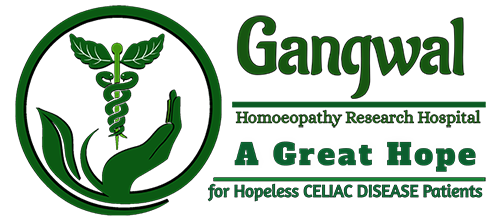
Celiac Disease
Celiac disease, also known as gluten-sensitive or gluten intolerance, is an autoimmune disease that leads to damage to the lining of the small intestine when foods containing gluten are eaten. Gluten is a very complex type of protein found in some grains. The damage to the intestine makes it hard for the body to absorb nutrients, especially fat, calcium, iron, and folate.
What Causes Celiac Disease?
Normally, our body’s immune system is designed to protect it from foreign invasions. When people with celiac disease eat foods containing gluten, their immune system forms antibodies to the gluten, which then attack the intestinal lining. This causes inflammation in the intestines and damages the villi, the hair-like structures on the lining of the small intestine. Nutrients from food are normally absorbed by the villi. If the villi are damaged, the person cannot absorb nutrients properly and ends up malnourished, no matter how much he or she eats.
Different people will experience the disease in different ways because the symptoms vary greatly from one person to the next. Often, symptoms of celiac disease are confused with other disorders, such as irritable bowel syndrome and lactose intolerance.

Symptoms for Children
Infants and children with celiac disease tend to have digestive problems. Common symptoms for infants and children include:
- Growth problems
- Decreased appetite and failure to gain weight
- Chronic diarrhea, which can be bloody
- Chronic constipation Vomiting
- Abdominal bloating and pain
- Fatigue
- Irritability
Common symptoms for teenagers include:
- Delayed puberty
- Growth problems
- Diarrhea
- Abdominal pain and bloating
- Weight loss
- Fatigue
- Irritability
- Depression
- Dermatitis herpetiformis (itchy skin rash that looks like eczema or poison ivy)
- Mouth sores

Symptoms for Adults
In adults with celiac disease, the inability of the body to absorb a sufficient amount of calcium to keep bones strong often leads to osteoporosis. Anemia, or low red blood cell count from iron deficiency, is another common problem caused by celiac disease. Infertility and miscarriages are also potential complications of the disease.
Adults often have fewer gastrointestinal symptoms of celiac disease. Diarrhea, for example, affects only one-third of adults with the disease.
Common symptoms for adults include:
- Iron deficiency
- Bone or joint pain
- Arthritis
- Depression or anxiety
- Bone loss or osteoporosis
- Tingling numbness in hands and feet
- Seizures
- Erratic menstrual periods
- Dermatitis herpetiformis
- Mouth sores
Treatments
In Homoeopathy there is big possibility for Celiac Disease Treatment. As Gluten diets has started after 3 Months of Treatment at our Centre.









